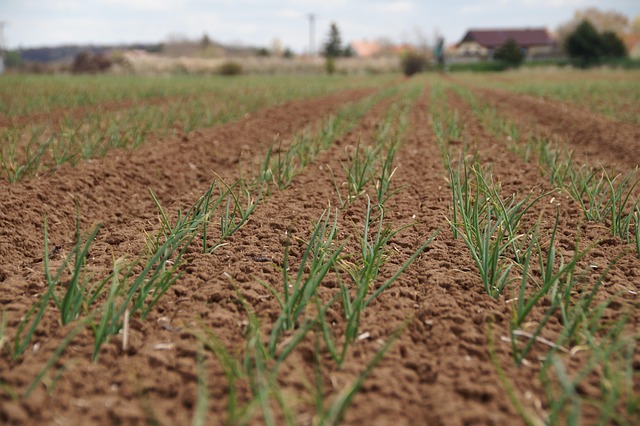Sustainable Farming Practices

Sustainable farming is no longer just an option—it is a necessity for ensuring food security, protecting the environment, and supporting future generations. As global populations rise and natural resources face increasing pressure, the agricultural sector must adopt practices that balance productivity with long-term ecological health. A guide to sustainable farming practices serves as a roadmap for farmers, policymakers, and communities striving to make agriculture more resilient, eco-friendly, and profitable.
At its core, sustainable farming emphasizes working with nature rather than against it. This involves conserving soil fertility, optimizing water use, protecting biodiversity, and reducing dependence on chemical fertilizers and pesticides. By integrating methods such as crop rotation, organic composting, natural pest management, and agroforestry, farmers can maintain healthy ecosystems while also improving crop yields. These practices not only enhance soil and plant health but also contribute to climate change mitigation by lowering greenhouse gas emissions and improving carbon sequestration.
Equally important is the social and economic dimension of sustainability. Sustainable farming supports rural livelihoods, empowers small-scale farmers, and encourages fair trade and ethical food systems. It also connects consumers with the source of their food, fostering awareness about healthier, chemical-free produce.
This guide is designed to provide practical insights into proven sustainable methods, ranging from organic techniques and renewable energy use to modern innovations like precision farming. By adopting these practices, farmers can build resilience against unpredictable weather, safeguard natural resources, and ensure long-term agricultural success.
Sustainable farming is not about sacrificing growth—it is about cultivating abundance responsibly. With thoughtful approaches and community collaboration, farming can evolve into a system that nourishes both people and the planet.
Key Pillars of Sustainable Farming
Sustainable farming is built on principles that ensure long-term productivity, ecological balance, and farmer well-being. Understanding these pillars is essential for adopting effective and practical practices.
- Soil Health and Fertility Management
Healthy soil is the foundation of sustainable agriculture. Farmers can improve soil fertility through practices such as:
- Crop Rotation: Planting different crops in succession to restore nutrients naturally.
- Organic Composting: Recycling crop residues and livestock manure to enrich soil.
- Reduced Tillage: Minimizing soil disturbance to preserve structure and microorganisms.
These methods prevent soil degradation, increase water retention, and enhance long-term productivity.
- Water Conservation and Management
Water is one of agriculture’s most precious resources. Sustainable practices aim to optimize usage through:
- Drip Irrigation: Delivering water directly to plant roots to reduce wastage.
- Rainwater Harvesting: Capturing and storing rainwater for irrigation.
- Mulching: Covering soil with organic matter to prevent evaporation.
Efficient water management not only saves costs but also ensures resilience against droughts.
- Natural Pest and Weed Control
Overreliance on chemical pesticides harms ecosystems and human health. Alternatives include:
- Biological Control: Introducing beneficial insects like ladybugs to manage pests.
- Neem-Based Sprays: Using natural extracts to repel harmful insects.
- Intercropping: Growing complementary crops to deter pests naturally.
These approaches reduce chemical residues and promote biodiversity.
- Biodiversity and Agroforestry
Diverse farming systems create stability in ecosystems. Agroforestry—integrating trees with crops—improves soil fertility, provides shade, and supports wildlife habitats. Crop diversity also lowers risks of total crop failure and enhances resilience to pests and climate variability.
- Renewable Energy and Technology
Modern sustainable farming embraces innovation. Solar-powered pumps, biogas plants, and precision farming tools help reduce carbon footprints while improving efficiency. Technology enables farmers to monitor soil conditions, track weather, and apply inputs more accurately.
The Benefits of Going Sustainable
Adopting these practices yields multiple advantages: improved soil fertility, reduced input costs, healthier produce, and long-term food security. Most importantly, it ensures that agriculture remains viable for future generations.
By combining traditional wisdom with modern techniques, farmers can build a farming system that is both productive and harmonious with nature.
Conclusion: Cultivating a Sustainable Future
Sustainable farming is not just a technique—it is a philosophy of working with the land in a way that ensures long-term abundance for both people and the planet. By focusing on soil health, efficient water use, natural pest control, biodiversity, and renewable technologies, farmers can create resilient agricultural systems that thrive in the face of environmental challenges. These practices reduce reliance on harmful chemicals, protect ecosystems, and ultimately produce healthier food for consumers.
The journey toward sustainability also empowers farming communities. By adopting eco-friendly methods, farmers lower input costs, improve profitability, and safeguard their livelihoods against unpredictable weather and market fluctuations. Moreover, when consumers support sustainably grown products, they contribute to a cycle of responsibility and awareness that benefits society as a whole.
It is important to remember that sustainability is not achieved overnight. It requires gradual shifts, consistent effort, and collaboration among farmers, researchers, policymakers, and consumers. Even small changes—like composting, planting cover crops, or practicing water conservation—can have a meaningful impact when adopted widely.
The future of farming lies in balancing productivity with stewardship. By embracing sustainable practices today, we can ensure fertile soils, clean water, thriving biodiversity, and secure food systems for generations to come. Sustainable farming is more than a choice—it is a commitment to cultivating life responsibly.
Take the First Step Towards Sustainable Farming Today!
Partner with Indochem Agrovet to access eco-friendly solutions, expert guidance, and innovative products that help you protect your crops while caring for the environment. Together, let’s build a greener and more productive future for Indian agriculture.
📍 Our Offices
Mumbai Address:
Parewala House No.4, Vakola,
Santacruz (East),
Mumbai – 400055
Kolkata Address:
Block – DD, House No-197,
1st Floor, Street No-295,
Action Area-1, New Town,
Kolkata, West Bengal – 700156
📞 Call Us: +91 9830 720311 / 83369 77770
🌐 Visit Us: https://indochemagrovet.in/
Indochem Agrovet – Nurturing Nature, Empowering Farmers.

